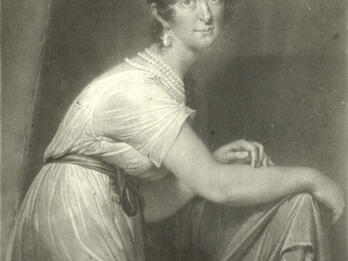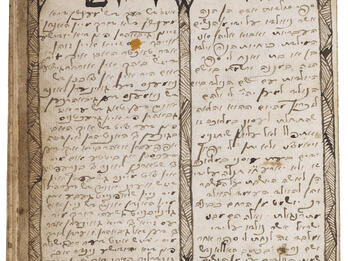First Will
Fanny von Arnstein
1793
I request my husband to dispose as follows:
I would wish to be able to give my family in Berlin the capital of 10,000 gulden held for me by my husband . . . my pearls, as my favorite pieces of jewelery, I ask to be divided into necklaces for each of my sisters, and whichever of them shall first be snatched away from this life / which God forbid…
Creator Bio
Fanny von Arnstein
Born into a prominent Jewish banking family in Berlin and married to a leading Viennese financier, Fanny von Arnstein (b. Itzig) entertained many luminaries at her famous salon. Having received an excellent education, von Arnstein was interested in art and culture and was a cofounder of the Music Society of Austria. She was a prominent hostess during the Congress of Vienna (1814–1815), and delegates such as Metternich and Talleyrand attended her receptions, which were sites of political negotiations and intrigues. Although famed for her engagement in non-Jewish society and culture, including introducing the custom of the Christmas tree to Vienna, von Arnstein never converted and remained committed to helping needy Jews.
Related Guide
Literature and Modernity
Jewish writing in the period spanning 1750–1880 reflects the profound changes that confronted Jews in modernity. Some writers self-consciously broke with traditional and religious models; others definitely embraced it.
Related Guide
Life Writing: Biography, Autobiography, and Ego Documents
The famous and the obscure, women and men, in epitaphs and private letters, ethical wills, cookbooks, and religious reflections, all reflect aspects of Jewish life in a period of great transition.
Related Guide
The Salon in Jewish History
Salons fostered a new class of social leaders, a space for ideas and art appreciation to grow without fear of political reprisals. In a society still constrained by social and legal boundaries, salons and their hosts created a miniature world in which social taboos were temporarily cast off.
You may also like
Solomon Maimon: An Autobiography

Portrait of Fanny von Arnstein
Letters to Richea Gratz
A Letter to Chief Rabbi Raffael Natan Tedesco of Trieste

Register of a Jewish Midwife



